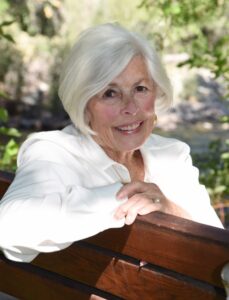BY JOELLEN COLLINS

I hate housework and have owned up to it by announcing that the inscription on my tombstone would sum up my legacy as “She left the dishes in the sink.” I’d imagined it not to scold me posthumously but to convey something finer, that I would almost always choose to spend my time with something other than completing domestic chores. I’d rather engage in enjoying my love of children, teaching, family, and the wonderful friends I have accumulated all these years. I’d like to be remembered for having left the world, as my mother told me, “a little better for your having been in it.” Ah, dream on.
I do not deny the virtue of the discipline of accomplishing domestic chores. I acknowledge and admire those who keep an immaculate home or office. Still, I would rather do most things without standing at a sink; I can fulfill the goals of a “clean life,” and wash away the dregs of negativity in the process.
I met a woman last week who was born in Uganda and at the age of seventeen moved to India, home to her larger family. Next to her was seated a woman of Japanese heritage, and across the table another new friend was celebrating her 100th birthday. She is an Australian artist who has lived in many different countries and manages to achieve a balance between the solitude of her art and generous hospitality to others.
After meeting these women, all “seniors,” as I am, I returned to my new apartment with a mixed sense of admiration for the vitality I had encountered and reflection upon my own life story. While I jokingly thought of that silly epitaph I imagine after my passing, I also remembered the time in India when I met Mother Teresa. She once stated, upon winning the Nobel Peace Prize, “We can do no great things, only small things with great love.” I find that a fitting view from an honored woman who chose to serve the poor, those often forgotten people, without constant accolades for her efforts.
We all have some chores in life that remain unattended; I will keep leaving some things undone, even pleasurable ones, in my quest for new vistas, ideas and compatriots in trying to live up to my mother’s entreaty. I may not have an immaculate home, but I can still aspire to travel, to read more books with inspiring language, to spend time with good companions, to create my own art, to volunteer for meaningful causes, and to work more diligently on listening more rather than talking.
I do remember that washing dishes with my sweet mother did not seem like a chore for me; it was a joy because I was helping HER. Perhaps if I imagined Mama next to me at my new sink, I could do better with that chore, a small thing done but “with great love.”



